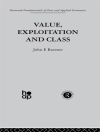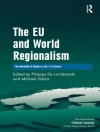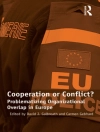Recommendations from the scientific community to ensure that the development and use of AI honors scientific norms
In late 2022, Open AI released Chat GPT, an AI chatbot capable of generating conversational answers and analyses, as well as images, in response to user questions and prompts. This generative AI is built with computational procedures, such as large language models, that train on vast bodies of human-created and curated data, including huge amounts of scientific literature. Since then, the worry that AI may someday outsmart humans has only grown more widespread.
In the past, as society grappled with the implications of new technologies—ranging from nuclear energy to recombinant DNA—the scientific community developed practices designed to increase adherence to the norms that have protected the integrity of each new form of scientific exploration, development, and deployment. In the process, scientists expanded their community’s repertoire of mechanisms designed to advance emerging science and technology while safeguarding the integrity of science and the wellbeing of the nation and its people.
This book provides a historical perspective on and an ethical approach to emerging AI technologies; an overview of AI frameworks and principles; and an assessment of AI’s current advances, hurdles, and potential. Experts from the fields of behavioral and social sciences, ethics, biology, physics, chemistry, mathematics, and computer science, as well as leaders in higher education, law, governance, and science publishing and communication, comprise the book’s contributors. Their essays remind us that, even as our understandings of emerging technologies and of their implications evolve, science’s commitment to core norms and values remains steadfast. The volume’s conclusion advocates for following principles of human accountability and responsibility when using artificial intelligence in research, including transparent disclosure and attribution; verification and documentation of AI-generated data and analysis; a focus on ethics and equity; and continuous oversight and public engagement.
Jadual kandungan
Contents
1. Overview and Context
Kathleen Hall Jamieson, Anne-Marie Mazza, and William Kearney
2. The Value and Limits of Statements from the Scientific Community: Human Genome Editing as a Case Study
David Baltimore and Robin Lovell-Badge
3. Science in the Context of AI
Jeannette M. Wing
4. We’ve Been Here Before: Historical Precedents for Managing Artificial Intelligence
Marc Aidinoff and David Kaiser
5. Navigating AI Governance as a Normative Field: Norms, Patterns, and Dynamics
Urs Gasser
6. Challenges to Evaluating Emerging Technologies and the Need for a Justice-Led Approach to Shaping Innovation
Alex John London
7. Bringing Power In: Rethinking Equity Solutions for AI
Shobita Parthasarathy and Jared Katzman
8. Scientific Progress in Artificial Intelligence: History, Status, and Futures
Eric Horvitz and Tom Mitchell
9. Perspectives on AI from Across the Disciplines
David Baltimore, Vinton Cerf, Joseph Francisco, Barbara Grosz, John Hennessy, Eric Horvitz, Kathleen Hall Jamieson, Marcia Mc Nutt, William Press, Saul Perlmutter, Jeannette Wing, and Michael Witherell
10. Protecting Scientific Integrity in an Age of Generative AI
Wolfgang Blau, Vinton Cerf, Juan Enriquez, Joseph S. Francisco, Urs Gasser, Mary L. Gray, Mark Greaves, Barbara J. Grosz, Kathleen Hall Jamieson, Gerald H. Haug, John L. Hennessy, Eric Horvitz, David I. Kaiser, Alex John London, Robin Lovell-Badge, Marcia K. Mc Nutt, Martha Minow, Tom M. Mitchell, Susan Ness, Shobita Parthasarathy, Saul Perlmutter, William H. Press, Jeannette M. Wing, and Michael Witherell
11. Safeguarding the Norms and Values of Science in the Age of Generative AI
Kathleen Hall Jamieson and Marcia Mc Nutt
Appendix 1. List of Retreatants
Appendix 2. Biographies of Framework Authors, Paper Authors, and Editors
Index
Mengenai Pengarang
Kathleen Hall Jamieson is the Elizabeth Ware Packard Professor of Communications and Director of the Annenberg Public Policy Center at the University of Pennsylvania.William Kearney is the Executive Director of the Office of News and Public Information and Editor of Issues in Science and Technology at the National Academies of Sciences, Engineering, and Medicine in Washington, DC.Anne-Marie Mazza is the Senior Director of the Committee on Science, Technology, and Law and Senior Advisor of the Policy and Global Affairs Division at the National Academies of Sciences, Engineering, and Medicine in Washington, DC.












